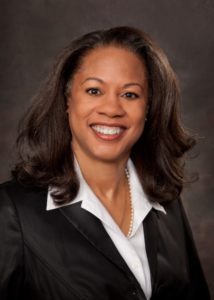Last month’s blog addressed the urgent issue of homeowner and renter’s insurance policies and natural disasters. I was reading a recent Wall Street Journal (WSJ) article “Check Your Insurance Policy for Fire Coverage” and appreciated the article’s point that the homeowners’ insurance market has been slowly and substantially changing over the years.
It seems that consumers make a lot of assumptions about their homeowner’s policies and what would be covered in the event of a disaster. The recent hurricane and fire disasters have shown that many homeowners with insurance policies were surprised with the limitations in those policies.
The WSJ article Identified trends in the insurance industry that many consumers would naturally overlook. The point of the article seemed to place the responsibility on insurance policyholders to communicate with our insurance representative or company to make sure that the policies we want, or can afford, are the policies in place. Even if financial resources limit your options for policy coverage, you will know what to expect if a disaster strikes.
The main message in the article addresses the change in the insurance industry in which insurance companies may offer different policies covering the same kind of disaster depending on the state.
For example, if you are in State A with Company X and move to State B with the same insurance company, you cannot assume that the insurance coverage will be the same, even though the price of the premium may seem the same. In addition to addressing the differences in the costs of insurance, the article does a great job of summarizing issues that consumers may not realize will impact their coverage:
- Home improvements that add value to the home may not be covered unless the insurance company knows about the improvements.
- Extra/added structures such as sheds or gazebos may not be covered unless the insurance knows about their existence and agrees to include the structures in the policy.
- Understanding the differences between Actual Cash Value Coverage compared to Replacement Cost Coverage, and whether an extended replacement policy, guaranteed replacement cost policy or inflation protection rider will help you decide what is appropriate coverage for your needs.
- Anticipate the impact of a widespread disaster that could cause a shortage of labor and materials, or changes to building codes require the addition of expensive fixtures that were not in the original structure(s), resulting in higher reconstruction costs.
If you would like a quick review of the resources available to help residents in disaster preparedness, read my previous blog: Wading through the flood of information when deciding on natural-disaster insurance.
ACA enrollment begins Nov. 1
The Affordable Care Act (ACA) is alive and well despite rumors to the contrary. Open enrollment starts November 1 until December 15 to ensure health insurance coverage starting January 1, 2018. You can still enroll after December 15, but you will have a delay in coverage.
If you or someone you know needs help in enrollment for healthcare coverage, including those who think that they cannot afford coverage, you may want to start with healthcare.gov. Small business owners, or individual or family members who do not have insurance through employment may also use this website to review options for health insurance policies and identify coverage.
In most states, the departments of insurance or insurance commissioners have consumer resources to answer questions and direct you to volunteer organizations prepared to assist with enrollment. Retirees and Medicare eligible consumers may also find AARP helpful.
General information on what to expect in 2018 can be found on the Kaiser Family Foundation website. Finally, for my Arizona family and friends, you can learn more about Arizona assistance here.
Health insurance is a vital part of keeping a community healthy and productive. Having access to preventive care (flu shots) and healthcare when we need it plays an important role in each person taking responsibility for our own healthcare and our families, co-workers, and friends.
 Yvonne R. Hunter is a licensed attorney and the Principal Consultant for YH Strategies, LLC, in Phoenix, Ariz. After a stint with the Arizona Department of Insurance, she learned that many consumers remain unaware of some of the issues associated with insurance products. This blog reflects her opinion and should not be regarded as legal advice. She encourages consumers interested in learning more about their own insurance experience to contact their state department of insurance or insurance commissioner or seek advice from an attorney. If you would like additional information on matters dealing with consumer insurance products, you can reach Yvonne at yrhunteraz@gmail.com.
Yvonne R. Hunter is a licensed attorney and the Principal Consultant for YH Strategies, LLC, in Phoenix, Ariz. After a stint with the Arizona Department of Insurance, she learned that many consumers remain unaware of some of the issues associated with insurance products. This blog reflects her opinion and should not be regarded as legal advice. She encourages consumers interested in learning more about their own insurance experience to contact their state department of insurance or insurance commissioner or seek advice from an attorney. If you would like additional information on matters dealing with consumer insurance products, you can reach Yvonne at yrhunteraz@gmail.com.

